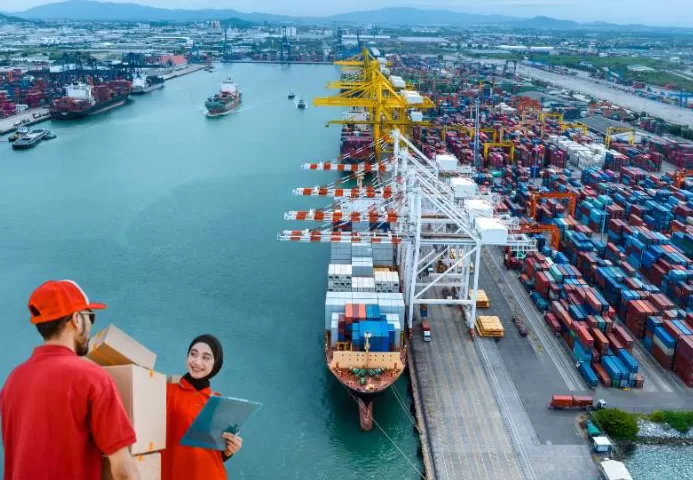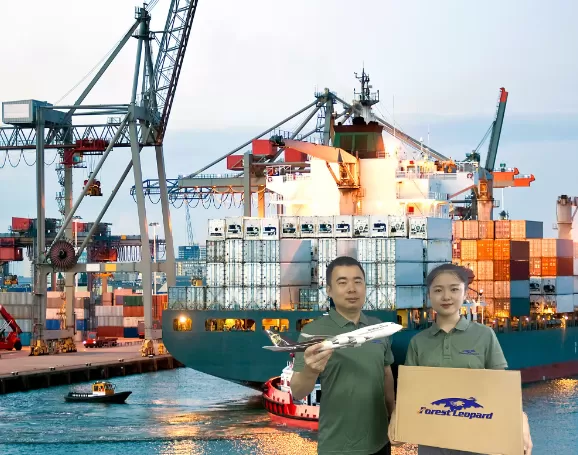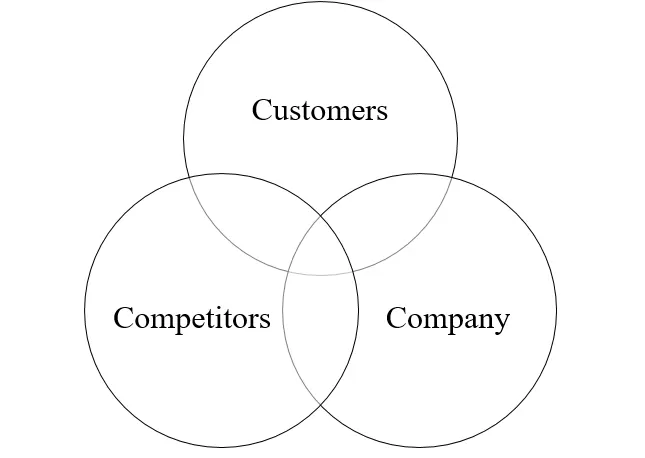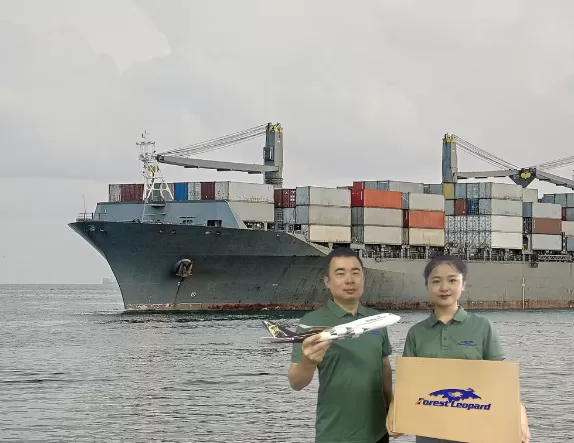If you're an Amazon seller, you know your supply chain isn't just a cost—it's your lifeline. A single delay, a hidden fee, or a compliance mistake can sink your rankings and your profits.
So, when you search for a "Top Freight Forwarder Partnering with Amazon," you're not just looking for a shipping company. You're looking for a strategic ally that understands the unique, high-stakes world of Amazon FBA.
This guide cuts through the noise. We won't just give you a list; we'll give you a framework for making the best choice for your business. Let's break down exactly what to look for.
Chapter 1: The Amazon Seller’s Logistics Reality Check
Here's the truth: managing FBA logistics yourself is like playing a high-stakes game with hidden rules. The most common pitfalls aren't just inconveniences; they're profit killers.
The Real Cost of Getting It Wrong:
The Hidden Fee Trap: It’s not just the ocean freight. It's the FBA prep fee because your cartons weren't labeled correctly. It's the long-term storage fee because your shipment missed the Prime Day cut-off. It's the re-stocking fee because your pallets weren't Amazon-compliant. These "small" fees can erase your margin on a entire shipment.
The Compliance Black Hole: Amazon's FBA requirements are a moving target. What was acceptable last quarter might get your shipment rejected today. A top partner doesn't just read the rules; they anticipate changes and proactively guide you.
The Silent Ranking Killer: When your inventory runs out, your search ranking plummets. Getting back to page one costs far more in PPC than any premium you'd pay for a reliable freight forwarder. Consistency is more valuable than the lowest cost.
Why a "Partner" is Different from a "Vendor":
A vendor moves boxes. A partner manages your supply chain risk, provides data-driven insights, and acts as an extension of your team. This distinction is everything.
Chapter 2: Decoding the "Partnership": More Than a Marketing Badge
Many companies claim to "partner with Amazon." You need to know how to verify this.
1. The Amazon SPN (Service Provider Network):
This is Amazon's official directory of vetted service providers. Being listed here means the company has met certain performance and reliability standards. It's a strong first signal.
2. FBA-Certified Carrier Programs (for NA & EU):
This is the gold standard for inbound transportation to Amazon's fulfillment centers. In North America, it's the Amazon Freight Partner program. In the EU/UK, it's the FBA-Certified Carrier program. These forwarders have direct, integrated systems with Amazon, leading to:
Guanteed Appointment Times: Drastically reduced risk of wait times and delays at the Fulfillment Center.
Seamless Visibility: Tracking data flows directly from the forwarder into your Seller Central.
Fewer Touchpoints: A more streamlined process from port to placement.
The Question to Ask: "Are you an Amazon FBA-Certified Carrier or part of the SPN for my target region (US, EU, etc.)? Can you walk me through how that benefits my shipment's visibility and delivery appointment scheduling?"
Chapter 3: The 3C Framework for Evaluating a Top Forwarder
Forget a simple checklist. Evaluate potential partners on these three core dimensions.
End-to-End Control: Do they own parts of the process (like their own customs brokerage or drayage trucks), or are they just a middleman? More control usually means more reliability.
FBA-Specific Expertise: Do they offer services like FBA labeling, poly-bagging, case packing, and palletizing to Amazon's exact specifications? Their warehouse should be an extension of the FC.
Geographic Coverage: Can they handle your shipments from your manufacturer in Shenzhen to the FC in IND9? It’s not just about the port-to-port leg.
In today's world, a forwarder without robust tech is a liability.
API Integration: Can their system talk to your Seller Central, your ERP, or your inventory management software? This eliminates manual data entry and errors.
Real-Time, Proactive Tracking: You shouldn't have to wonder where your shipment is. Look for a platform that provides real-time GPS tracking and, more importantly, proactive alerts for delays or issues.
Data & Reporting: Can they provide you with analytics on your shipping spend, transit time consistency, and carbon footprint? Good data helps you optimize.
3. Competence: Their Human Expertise
Technology is useless without smart people.
A Dedicated Point of Contact: You need a single, accountable person who knows your business, not a generic support desk.
Problem-Solving Instincts: Ask them for a case study: "Tell me about a time a client had a major compliance issue at a port. How did you resolve it?" Their answer will tell you everything.
Industry Specialization: A forwarder that specializes in e-commerce and retail will understand your needs far better than one that mainly deals with industrial machinery.
Chapter 4: A Real-World Look at Top-Tier Forwarders
Let's be practical. Here’s a breakdown of the types of partners you'll encounter.
| Partner Type |
Best For |
What You're Really Getting |
Key Question to Ask |
| Digital Freight Platforms (e.g., Freightos, Flexport) |
Sellers who value transparency, easy comparison, and a tech-first approach. |
A streamlined platform for quoting and booking. Often a marketplace of carriers. Great for data visibility. |
"Who is the actual carrier, and what is your process for handling FBA prep and last-mile delivery to the FC?" |
| Asset-Light Logistics Giants (e.g., Expeditors, DSV) |
Established brands with complex, high-volume global shipments. |
Deep expertise, a massive global network, and sophisticated supply chain solutions. High-touch service. |
"Can I speak to a dedicated account manager, and can you provide references from other Amazon sellers in my niche?" |
| FBA-Specialized 3PLs (e.g., Cahoot) |
Sellers who want a fully integrated solution from fulfillment to freight. |
A turnkey solution. They often combine freight with warehousing, prep, and even shared inventory pooling. |
"How does your model specifically reduce my overall logistics costs and improve my speed to market?" |
Chapter 5: The Implementation Blueprint: From Selection to Success
Finding the right partner is step one. Implementing correctly is what drives success.
Phase 1: The Discovery & RFQ (1-2 Weeks)
Prepare a Detailed RFQ: Don't just ask for a price. Provide your product details, origin/destination, and require a breakdown of all charges (including FBA prep). Be explicit about your Amazon requirements.
Schedule a Demo: Don't just have a sales call. Ask for a live demo of their tracking and reporting platform.
Phase 2: The Pilot Shipment (3-4 Weeks)
Start Small: Run a single, non-critical container or LCL shipment with them first.
Test Their Communication: How quickly do they respond? Are their updates proactive or reactive?
Audit the Process: Did everything happen as promised? Were there any surprise fees?
Phase 3: Scaling & Optimization (Ongoing)
Establish KPIs: Measure On-Time In-Full (OTIF) performance, billing accuracy, and problem-resolution time.
Schedule Quarterly Reviews: A true partner will want these meetings to discuss your performance and find new ways to optimize costs and service.
Conclusion: Your Path to a Stress-Free Supply Chain
Choosing a top freight forwarder for your Amazon business is one of the most impactful decisions you'll make. It’s not about finding the cheapest option; it’s about finding the most reliable, knowledgeable, and technologically advanced partner.
The right partner does more than move goods. They give you predictability, protect your profit margins, and, most importantly, give you the peace of mind to focus on what you do best: growing your brand on Amazon.
Ready to see the difference a true partner can make? [Get a personalized consultation and quote from our FBA experts today]. We'll audit your current supply chain and show you exactly how we can optimize it for reliability and cost.
FAQs
1. Q: What's the typical payment structure for a freight forwarder? Do I pay upfront or upon delivery?
A: Most established forwarders work on credit terms after an initial relationship is built. You'll likely pay a deposit to secure space on a vessel or aircraft, with the balance due before the cargo is released at the destination port. They'll typically require a credit application. Be wary of any company demanding 100% payment upfront before the shipment even moves.
2. Q: If my goods are damaged during transit, who is liable—the freight forwarder or the carrier?
A: This is a critical distinction. The freight forwarder is your agent, while the carrier (shipping line or airline) is physically moving the goods. Liability initially falls on the carrier, as they issue the Bill of Lading. However, a top-tier forwarder will manage the entire claims process on your behalf, acting as your advocate. This is a key part of the value they provide.
3. Q: How do you handle "all-risk" insurance, and is it worth the cost for a seasoned seller?
A: "All-risk" insurance is a smart investment, especially for high-value shipments. While carriers have limited liability, it only covers specific perils and often amounts to very little per kilo. All-risk insurance covers physical loss or damage from external causes during the entire journey. We can connect you with our trusted insurance partners, but the key is to compare the premium against your product's profit margin and your risk tolerance.
4. Q: Can you help us navigate the rules of specific Amazon-restricted categories, like electronics or groceries?
A: Absolutely. This is where deep expertise matters. Categories like electronics (requiring FCC imports) or food and cosmetics (requiring FDA prior notice) have additional layers of regulation. We help ensure your products not only get to the FC but are also compliant with all relevant US government agency rules, preventing costly holds or destruction.
5. Q: We're considering shipping by rail from China to Europe. How does this impact the final delivery to Amazon's FCs?
A: Rail is a great middle-ground option. The key is ensuring your forwarder has a seamless handoff at the European rail terminal. We manage the "last mile" drayage, scheduling the final trucking leg to the specific Amazon FC according to their strict appointment system, ensuring the speed advantage of rail isn't lost at the final hurdle.
6. Q: What specific documents should I have ready from my supplier to ensure a smooth process?
A: Having the right documents from the start prevents delays. You should secure a Packing List (itemizing each carton), a Commercial Invoice (for customs valuation), and a Certificate of Origin. We will provide you with templates to send to your supplier to ensure they contain all the necessary information for both customs and Amazon's requirements.
7. Q: What are your standard payment terms, and do they change during peak season?
A: Standard terms are typically Net 30 days after the invoice date. During peak season (Q4), these terms generally remain the same for established clients. However, capacity is tighter, so securing your space with a deposit earlier in the process is crucial. We're transparent about deadlines to lock in rates and space.
8. Q: If Amazon unexpectedly closes an FC to new inventory, what's the contingency plan?
A: This happens, and a good partner has a plan. We first check for open inventory placements within your network. If that's not possible, we can arrange for your goods to be received at a partner warehouse for temporary storage, then delivered to the FC once it reopens. We communicate this situation and the options to you immediately.
9. Q: Do you offer consolidation services for multiple smaller suppliers in China, and how does inspection work?
A: Yes, this is a core service and a major cost-saver. We can collect Less-than-Container-Load (LCL) shipments from multiple suppliers at our origin warehouse, consolidate them into a single Full-Container-Load (FCL) for shipping. We can also arrange for a third-party inspection at the warehouse before the container is sealed, giving you quality control before goods even leave the country.

 EN
EN
 FR
FR
 ES
ES
 JA
JA
 PT
PT
 RU
RU
 AR
AR








